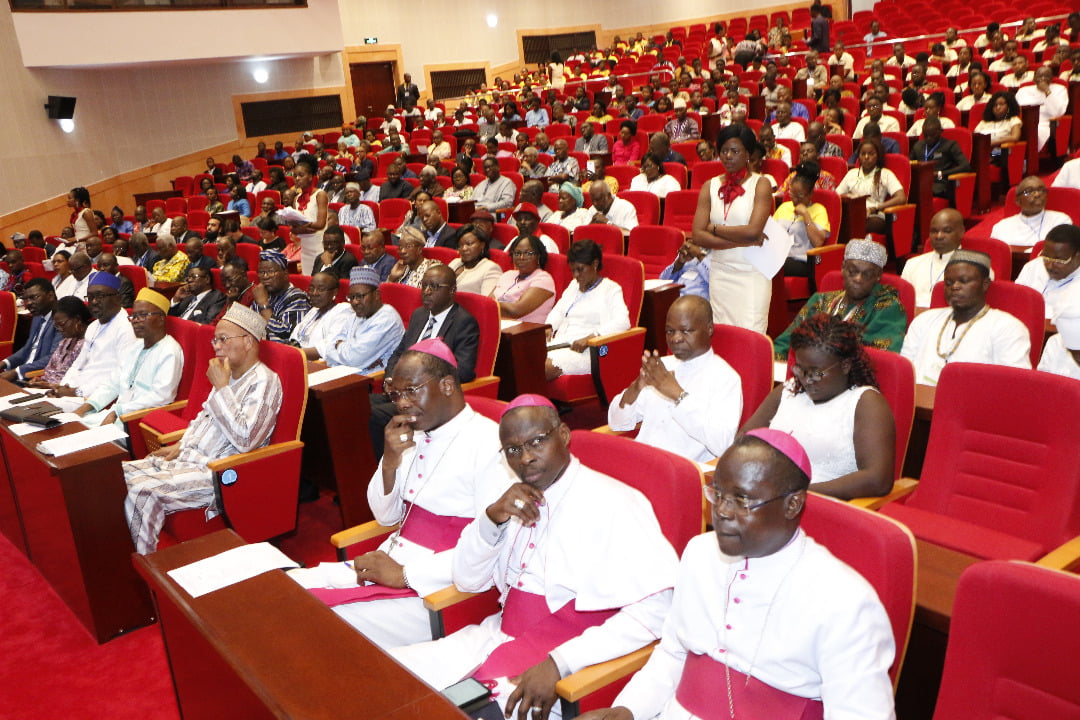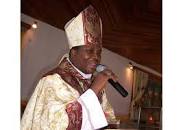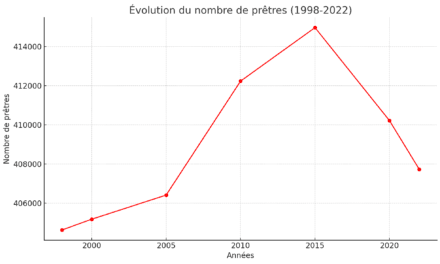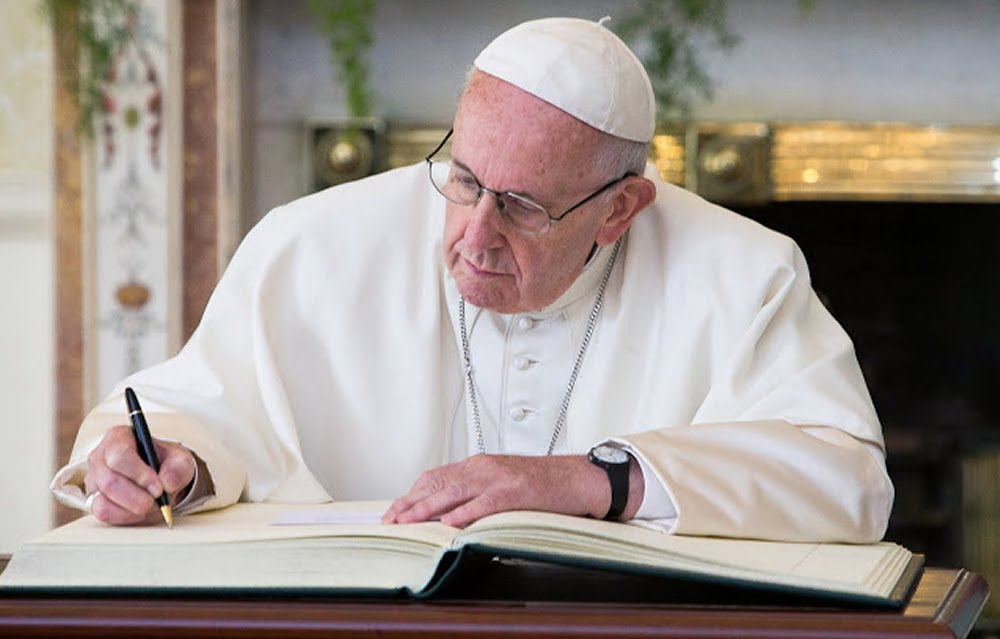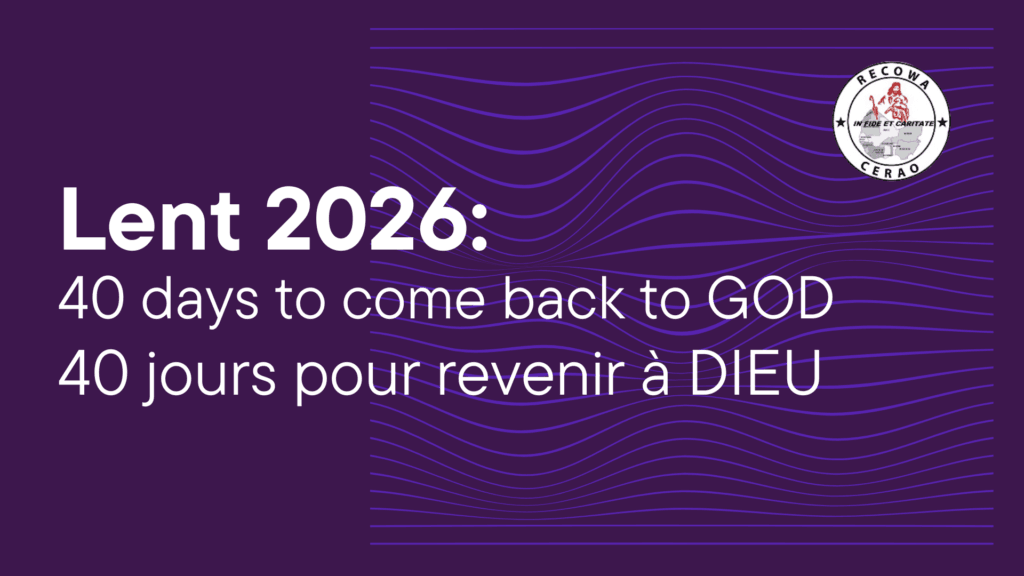
Under the aegis of the Episcopal Conference of Benin (CEB), the Movement of executives and political figures (Mccpp) and the Christian Catholic Observatory of Governance (Occg) held, Saturday, February 29, at the Palais des Congrès in Cotonou, an international conference marking the 30th anniversary of the National Conference.
« Today, after three decades of practice of the democratic Renewal, in view of the current situation of the country and taking into account national, regional and international realities as well as the evolution of generations, to what extent the achievements of this historic meeting resist they wear out over time? This questioning of Father Nathanaël Soédé, national chaplain of executives and political figures in Benin guided the thinking of the participants in the international conference organized by the Church of Benin to mark the 30th anniversary of the National Conference.
The National Conference or « Conference of the living forces of the Nation » took place in Cotonou from 19 to 28 February 1990. It was chaired, in a context of crisis and social asphyxiation, by Mgr Isidore de Souza, then Archbishop of Cotonou. It marks the beginning of the democratic era in Benin.
Assessment of the National Conference
One of the aims of the meeting organized on Saturday, February 29 by the Beninese Church was to take stock of the National Conference. This is the task that the experts involved took on.
Political scientist Joël Guèdègbé, one of the speakers at the conference, noted several weaknesses in the political approaches adopted in the country since 1990 and urged respect for the political resolutions that were taken at the national conference.
Following him, Nicaise Mèdé, a specialist in public law and professor at the University of Abomey-Calavi (Benin) started from a questioning of the hypothesis that the adoption of the democratic regime would be enough to generate development to make participants aware of the country’s economic backwardness. « After 30 years of democratic experience, Benin is still in the Least Developed Countries (LDCs), » said the academic.
Father Cyprien Tindo, a philosopher, said that the Catholic Church has never remained indifferent to the socio-political situation in the country. “Apart from praying for the country, the various communications through their official channels, formal meetings with political actors, the bishops of Benin have set up crucibles for the training of laypeople: the Institute of Craftsmen of Justice and of peace (Iajp), the diocesan commissions Justice and Peace, the national chaplaincy of the executives and political personalities for the Christians engaged in politics”, he explained.
What should we do now?
It was to Archbishop Aristide Gonsallo, secretary-general of the Episcopal Conference of Benin and bishop of Porto-Novo that the task of animating the final communication of the symposium entitled: « What should we do now? « . To this question, he responded by highlighting ten points of attention formulated in terms of recommendations: « commit to putting man at the center of development, conceive of power as a service, work to root the State of right, work for the advent of a free and responsible press, guarantee and preserve fundamental freedoms for all, promote development in solidarity, strengthen civic education, ensure the preservation of the achievements of the National Conference, love the Nation and work for national cohesion ”.
xxxx
Depuis longtemps, AGENCE DE NOUVELLES RECOWACERAO, REOCONA a rempli la vague médiatique de nouvelles étranges provenant de notre sous-région ouest-africaine. Aujourd’hui, la musique passe à un événement joyeux.
Sous l’égide de la Conférence épiscopale du Bénin (CEB), le Mouvement des cadres et personnalités politiques (Mccpp) et l’Observatoire chrétien catholique de la gouvernance (Occg) ont tenu, samedi 29 février, au Palais des congrès de Cotonou, un colloque international marquant le 30e anniversaire de la Conférence nationale.
« Aujourd’hui, après trois décennies de pratique du Renouveau démocratique, au regard de la situation actuelle du pays et compte tenu des réalités nationales, régionales et internationales ainsi que l’évolution des générations, dans quelle mesure les acquis de cette rencontre historique résistent-ils à l’usure du temps ? » Cette interrogation du père Nathanaël Soédé, aumônier national des cadres et personnalités politiques du Bénin a guidé la réflexion des participants au colloque international organisé par l’Église du Bénin pour marquer les 30 ans de la Conférence nationale.
La Conférence nationale ou « Conférence des forces vives de la Nation » a eu lieu à Cotonou du 19 au 28 février 1990. Elle a été présidée, dans un contexte de crise et d’asphyxie sociale, par Mgr Isidore de Souza, alors archevêque de Cotonou. Elle marque le début de l’ère démocratique au Bénin.
Bilan de la Conférence nationale
L’un des buts de la rencontre organisée, samedi 29 février, par l’Église béninoise était de faire le bilan de la Conférence nationale. C’est à cette tâche que se sont attelés les experts intervenus.
Le politologue Joël Guèdègbé, un des intervenants au colloque, a relevé plusieurs faiblesses des approches politiques adoptées dans le pays depuis 1990 et exhorté au respect des résolutions politiques qui ont été prises à conférence nationale.
À sa suite, Nicaise Mèdé, spécialiste de droit public et professeur à l’Université d’Abomey-Calavi (Bénin) est parti d’une remise en cause de l’hypothèse selon laquelle l’adoption du régime démocratique suffirait à générer le développement pour faire constater aux participants le retard économique du pays. « Après 30 ans d’expérience démocratique, le Bénin est toujours dans les Pays les moins avancés (Pma) », a souligné l’universitaire.
De son côté, le père Cyprien Tindo, philosophe, a estimé que l’Église catholique n’est jamais restée indifférente à la situation sociopolitique du pays. « En dehors de la prière pour le pays, les diverses communications à travers leurs canaux officiels, les rencontres formelles avec les acteurs politiques, les évêques du Bénin ont mis sur pied des creusets de formation des laïcs : l’Institut des artisans de justice et de paix (Iajp), les commissions diocésaines Justice et Paix, l’aumônerie nationale des cadres et personnalités politiques pour les chrétiens engagés en politique », a-t-il expliqué.
Que devons-nous faire maintenant ?
C’est à Mgr Aristide Gonsallo, secrétaire général de la Conférence épiscopale du Bénin et évêque de Porto-Novo qu’est revenue la tâche d’animer la communication finale du colloque intitulée : « Que devons-nous faire maintenant ? ». À cette question, il a répondu en dégageant dix points d’attention formulés en termes de recommandations : « s’engager à mettre l’homme au centre du développement, concevoir le pouvoir comme service, travailler à l’enracinement de l’État de droit, œuvrer à l’avènement d’une presse libre et responsable, garantir et préserver les libertés fondamentales pour tous, promouvoir le développement dans la solidarité, renforcer l’éducation civique, veiller à la préservation des acquis de la Conférence nationale, aimer la Nation et travailler à la cohésion nationale ».
- CATHOLIC ARCHBISHOP IN GHANA HAILS POPE LEO XIV AS GOD’S GIFT - 23 mai 2025
- POPE LEO XIV TO APPROVE CANONIZATIONS - 22 mai 2025
- THE EVOLUTION OF PAPAL TRANSPORTATION - 20 mai 2025

